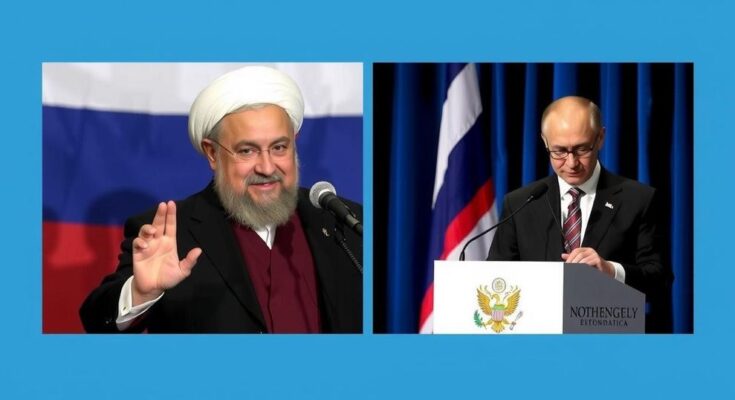The United States has sanctioned Iranian and Russian organizations for attempting to interfere in the upcoming elections, citing their roles in disinformation campaigns. The targeted groups include the Cognitive Design Production Center and the Center for Geopolitical Expertise, with additional sanctions on their director and a Russian judge. These measures reflect the US’s commitment to protecting electoral integrity and addressing ongoing repression in Russia.
On Tuesday, the United States announced new sanctions targeting Iranian and Russian organizations for alleged attempts to interfere in the upcoming US elections. Among the entities sanctioned are the Cognitive Design Production Center, linked to Iran’s Islamic Revolutionary Guard Corps (IRGC), and the Moscow-based Center for Geopolitical Expertise. According to the US Treasury Department, these groups aimed to exacerbate socio-political divisions and influence the American electorate through misinformation campaigns.
Bradley Smith, Acting Under Secretary of the Treasury for Terrorism and Financial Intelligence, stated that both Iran and Russia have actively engaged in efforts to undermine US electoral integrity by dividing the American populace through targeted disinformation initiatives. The US Treasury highlighted that the Cognitive Design Production Center had orchestrated plans to incite tensions within the electorate in anticipation of the 2024 elections. The Center for Geopolitical Expertise was noted for producing and funding deep fake videos while disseminating false information about candidates.
In addition to the organizations, sanctions were also placed on the Center’s director, Valery Mikhaylovich Korovin. This measure builds upon earlier actions against the IRGC, the Russian Main Intelligence Directorate (GRU), and their associated factions, amidst claims that Iranian authorities attempted to erode public trust in US democratic processes. Furthermore, the Treasury Department imposed sanctions on Russian judge Olesya Mendeleeva regarding the detainment of former Moscow city councillor Alexei Gorinov for dissenting against Russia’s ongoing war in Ukraine. This action underscores the US administration’s condemnation of Russia’s judicial practices aimed at stifling opposition.
Alan Smith reaffirmed that “Russia’s manipulation of its legal system silences dissent and suffocates the truth about Russia’s indefensible war against Ukraine,” highlighting the broader implications of the US sanctions.
The sanctions against Iranian and Russian organizations stem from ongoing concerns about foreign interference in US elections, particularly in the context of upcoming 2024 elections. The US government has been vigilant in identifying and responding to disinformation campaigns that aim to sway public opinion and create divisions among American citizens. The actions against the IRGC and GRU affiliates are part of a larger strategy to safeguard the integrity of the electoral process and undermine external efforts to exploit vulnerabilities in the system. Additionally, the situation regarding Alexei Gorinov speaks to the increasing repression of dissent in Russia as the government seeks to control narratives surrounding its military actions.
In conclusion, the recent sanctions imposed by the United States against Iranian and Russian organizations emphasize a strong commitment to protecting electoral integrity from foreign interference. Through these actions, the US government aims to counteract disinformation campaigns and reinforce democratic values, while simultaneously addressing human rights abuses within Russia’s legal system. The developments signal a continuing focus on the interplay between foreign influence and domestic political stability, as the US prepares for its 2024 elections.
Original Source: www.barrons.com




